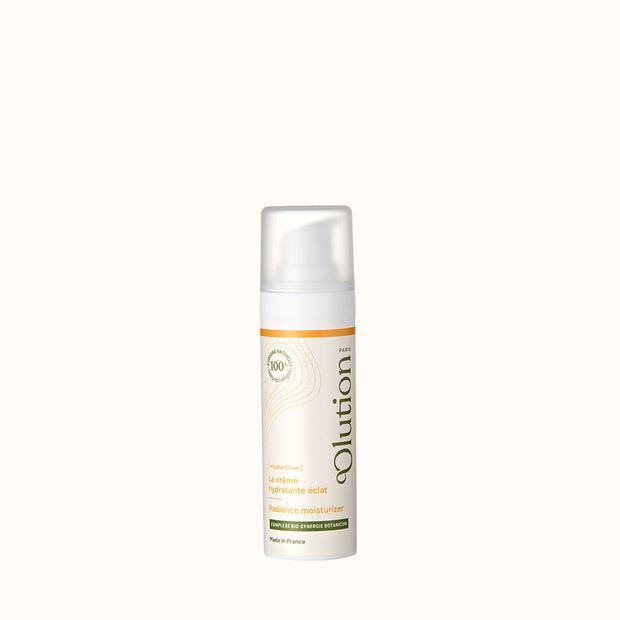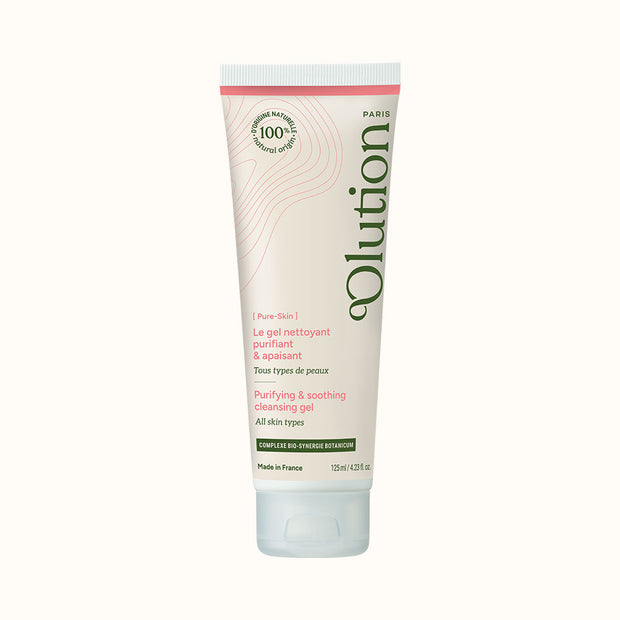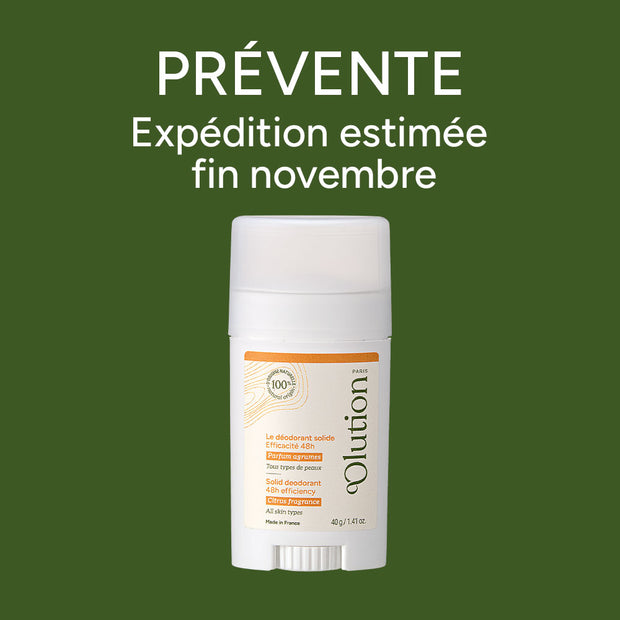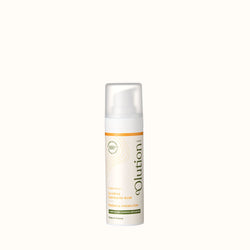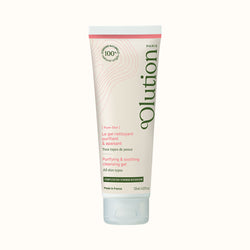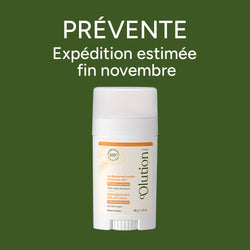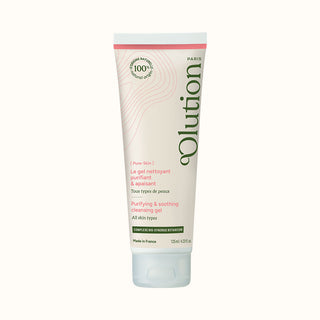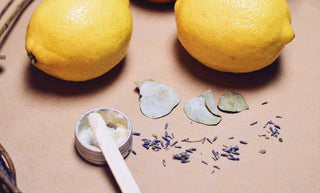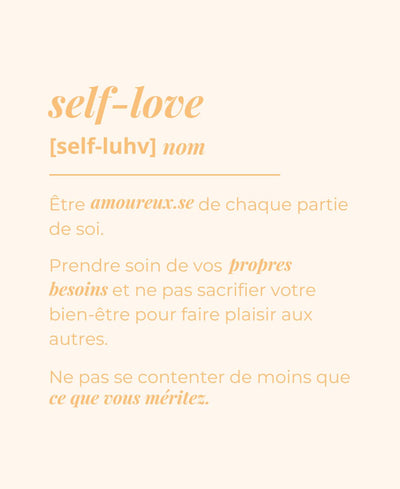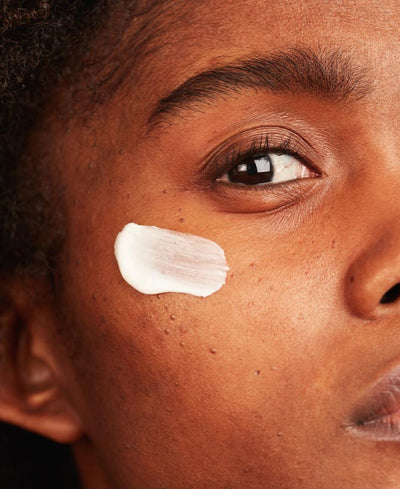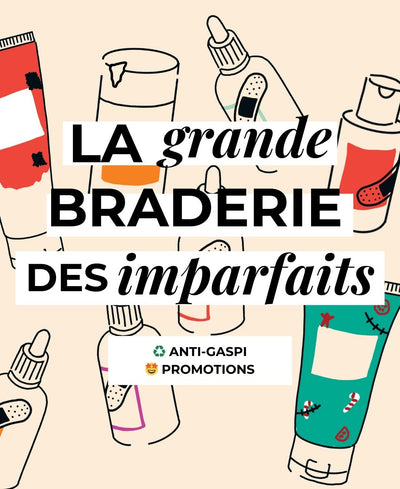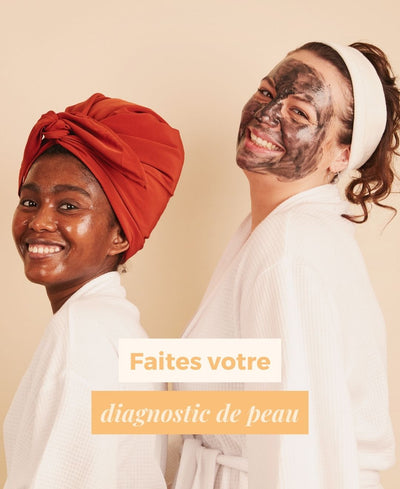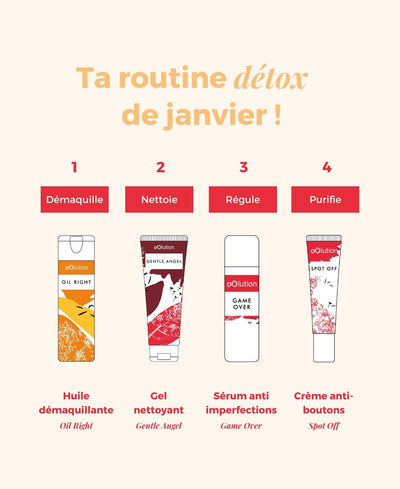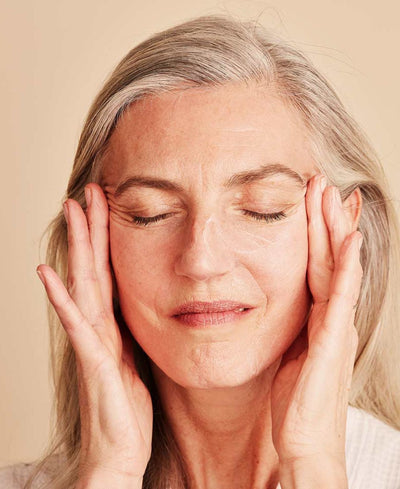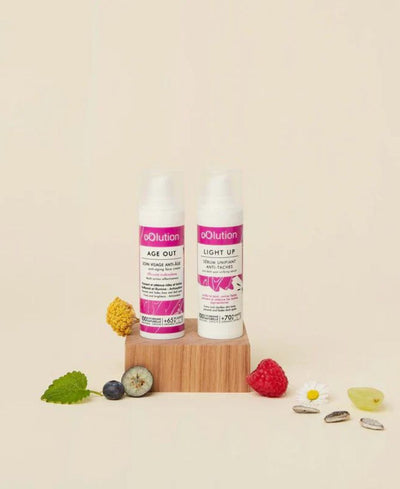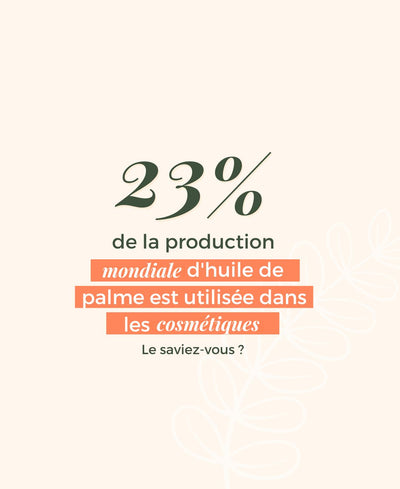
Our position on organic cosmetic labels
Written on 18.May.18 by Anne-Marie - Updated on 01.Oct.21
You may have noticed the absence of an organic cosmetics label on oOlution products. That's right, we don't carry any labels. By choice. The reason? All our organic cosmetics have been designed to surpass all existing labels. That's right! No label can match our standards for you! And because we understand that you may have some questions, here are our answers.
Organic labels are useful, aren't they?
The intention of labels is laudable: to assure you at a glance that a product is organic.
The cosmetics market means countless brands, often complex compositions and a whole host of ingredients with obscure names. It's not easy to know what you're applying to your skin. Especially when greenwashing gets involved...
In this context, the presence of an organic label on the packaging indicates that the product complies with a defined set of specifications: generally a minimum ofnatural ingredients and/or organically grown ingredients and the absence of certain undesirable substances. Interesting when you're taking your first steps towards greener cosmetics consumption.
Why do you think organic cosmetics labels need to be improved?
Many different and unequal labels coexist on the French cosmetics market. All self-define their own criteria and approach. The result? It's not so easy to find your way around... To help you, we've put together a summary of the main labels.
Faced with this multiplicity, we think that a good way to simplify the choice for everyone is to make the percentage ofnatural ingredients compulsory on all cosmetics to distinguish products that are truly 100% natural. This percentage, already present on certified organic cosmetics, would make it easier to distinguish them from other products. The minimum for certified cosmetics is 95% of ingredients of natural origin. As for oOlution, 100% of our ingredients are of natural origin, 100% of our active plant ingredients are organic, 100% of our products are formulated without mineral, esterified or hydrogenated oils, and 100% of our products contain no palm oil derivatives!
Do you recommend a particular organic cosmetics label?
Even the Cosmébio label, one of the most demanding with 95%natural ingredients or of natural origin (excluding water), authorizes a few synthetic preservatives and even a chemical detergent, polluting and aggressive like SLS. It also allows the use of esterified and hydrogenated oils, as well as palm oil derivatives. So it's out of the question to carry a label authorizing ingredients we refuse to use. However, in the cosmetics aisle, it's still a guarantee of quality compared with conventional cosmetics.
However, if you must choose a skincare product on the basis of its label, give preference to those bearing the Nature & Progrès label. This label clearly stands out from the crowd: precise restrictive lists, organic requirements for 100% of ingredients of plant origin, a ban on all petrochemical and synthetic ingredients (with very rare exceptions), GMOs and palm oil (the only ones to take a stand on this issue! ).
Even if it doesn't cover all our requirements, we feel closer to the Nature & Progrès approach.
But can you be organic without a label?
Yes, you can even be the most organic of bios without being labelled!
Joining an organic label is a voluntary process. It implies compliance with defined criteria and controls imposed by the public or private organization that manages it. But it's by no means compulsory to develop organic products.
How does oOlution exceed the requirements of organic cosmetics labels? Do you do better?
No false modesty between us: at oOlutionwe do it better!
Our specifications are stricter: all our skincare products contain 100%natural ingredients, either organically grown, sustainably harvested, or of natural origin obtained by simple, non-polluting processing. 0% harmful, toxic or even simply dubious ingredients. Our "without" list is too long to reproduce in full ;), but you'll find it here.
It is also more demanding, with two key concepts: quality and efficacy. No organic label can guarantee this. A certified product may contain 80% water, 15% inert fillers, texturizing agents and a tiny percentage of (more or less) active agents. Of course, it won't do you any harm... but it won't do you any good either!
Our oOlution products are composed of 100% active ingredients, beneficial for your skin, and we only accept high-quality natural raw materials first-press oils, pure butters, essential oils and organic plant extracts. In short, precious ingredients, rich in nutritive and protective elements. Not to mention the famous esterified or hydrogenated oils.
Finally, our approach is based on uncompromising ethics. Our entire process is based on responsible eco-design. Working with experts, we have put in place a preventive approach to limit our environmental impact at every stage of our activity, from the cultivation of our basic ingredients to the end-of-life of our products and packaging. These include
- - we exclude ALL use of palm oil and its derivatives, and more generally ensure that our ingredients do not contribute to the over-exploitation of resources, leading to ecological, economic and social imbalances;
- - our containers are fully recyclable, PET-free, and our shipping packaging is minimized;
- we exclude all animal exploitation: no ingredients of animal origin, no animal testing.
These issues are often ignored by labels, and at best addressed by vague, non-binding recommendations...
What are the proofs of our good faith?
We communicate transparently about our ingredients, how they are produced, our values and our approach. We also know that sometimes we're not completely satisfied, as with our packaging... and we continue to work on this.
By giving you the keys to understanding your cosmetics: compositions, problematic ingredients, issues for your health and the environment. Take the time to browse through our website, our blog, our labels and product sheets: it's all there. And don't hesitate to contact us if you have any doubts.
On the pages of each of our products, we indicate the ingredients by color class (yellow for organic vegetable oils, dark orange for organic plant butters, blue for aqueous extracts, light orange for organic oily extracts and purple for essential oils).
We cannot conceive of our business without this informative and educational dimension. Because our ambition is not only to offer you the most healthy, natural and effective products. We also want to help change the world... or at least the world of cosmetics!
What do you think of ISO 16128?
What about the brand-new ISO 16128 standard for natural and organic cosmetics? Here too, despite its "standard" name, there's no obligation.
Yes, organic products are all the rage, and manufacturers have jumped on the bandwagon. A few drops of an organic ingredient in the middle of a dubious composition, a lot of marketing: and there you have it, a pseudo-ecological varnish on an unsavory product.
This approach has more to do with greenwashing than a desire to offer better products. There is no limit at all on the content of synthetic ingredients, and no minimum requirement for organic ingredients. Or a ridiculously low percentage, calculated on an already low level of ingredients of natural origin. Organic, a skincare product containing only 1% organic ingredients, really?
It should be added that, in the context of this standard, the "natural origin" criterion is highly inadequate : it allows water to be counted as part of the naturalness percentage. In this case, you don't need to add much to reach the required level! Worse still, petroleum derivatives are also included in this definition!
In short, the new ISO 16128 standard does not offer sufficient guarantees . Under the influence of the conventional companies who worked on its implementation, it provides no naturalness or organic threshold, no blacklist of ingredients, no control procedures, and authorizes petrochemical components including parabens, solvents and phenoxyethanol. In short, it will only allow the least scrupulous manufacturers to offer "organic" cosmetics at a discount.
If you have any other questions, don't hesitate to ask! We love it
Recommended products
